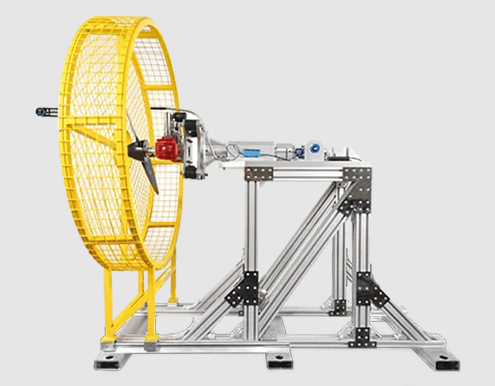The Science Behind Engine Test Benches: Unlocking Performance and Efficiency
Engine test benches are sophisticated systems designed to unlock the full potential of engines by evaluating their performance, optimizing efficiency, and ensuring reliability. These test benches are used in various industries, including automotive, aerospace, and marine, to analyze engine behavior under controlled conditions. In this article, we will delve into the science behind engine test benches, exploring the technologies and methodologies employed to unlock performance and efficiency in engines.
Precise Measurement and Control
Engine test benches are equipped with advanced measurement and control systems to ensure precise monitoring and regulation of engine parameters. These systems utilize sensors and data acquisition systems to collect real-time data on factors such as torque, power output, temperature, pressure, and fuel consumption. The collected data allows engineers to analyze engine behavior, identify performance characteristics, and make informed adjustments for optimization. The ability to precisely measure and control engine parameters is crucial in unlocking the full potential of engines and achieving desired performance outcomes.

Load Simulation and Performance Analysis
Engine test benches employ load simulation techniques to replicate real-world conditions and analyze engine performance. By subjecting the engine to varying loads and operating conditions, engineers can assess its response and behavior. Load simulation involves applying controlled forces and torques to the engine, mimicking the demands it would encounter in actual applications. This enables performance analysis and optimization, as engineers can evaluate power output, efficiency, emissions, and other performance metrics under different scenarios. Load simulation allows for comprehensive testing and validation of engines, ensuring their suitability for specific applications.
Combustion Analysis and Emissions Control
The combustion process is a critical aspect of engine performance and efficiency. Engine test benches utilize combustion analysis techniques to study the combustion characteristics, fuel-air mixture, ignition timing, and combustion stability of engines. Through detailed analysis, engineers can optimize the combustion process for improved efficiency, power output, and emissions control. Combustion analysis tools, such as exhaust gas analyzers and optical sensors, provide insights into the combustion behavior, allowing engineers to make necessary adjustments and enhancements to achieve optimal engine performance.
Data Modeling and Simulation
Data modeling and simulation play a significant role in the science behind engine test benches. By utilizing mathematical models and computer simulations, engineers can analyze engine behavior, predict performance outcomes, and explore various optimization strategies. These models incorporate factors such as thermodynamics, fluid dynamics, and combustion kinetics to simulate engine operation accurately. By simulating different scenarios and configurations, engineers can evaluate the impact of design changes, optimize parameters, and reduce the need for extensive physical testing. Data modeling and simulation enable efficient exploration of design options and aid in the development of more efficient and reliable engines.
Diagnostics and Fault Detection
Engine test benches also serve as valuable tools for diagnostics and fault detection. By closely monitoring engine parameters during testing, engineers can detect anomalies, identify potential issues, and troubleshoot problems. Test bench data can provide insights into abnormal engine behavior, performance degradation, or malfunctions, facilitating timely corrective actions. Diagnostics and fault detection capabilities enhance engine reliability, as potential problems can be addressed before they lead to catastrophic failures or performance degradation in real-world applications.
Conclusion
The science behind engine test benches combines advanced measurement and control systems, load simulation techniques, combustion analysis, data modeling, and diagnostics to unlock performance and efficiency in engines. Through precise measurement and control, load simulation, combustion analysis, data modeling, and fault detection, engineers can optimize engine performance, improve fuel efficiency, and ensure reliability. Engine test benches provide valuable insights and enable thorough testing and validation, contributing to the development of more efficient, powerful, and environmentally friendly engines in various industries.
339
0
0

Comments
All Comments (0)